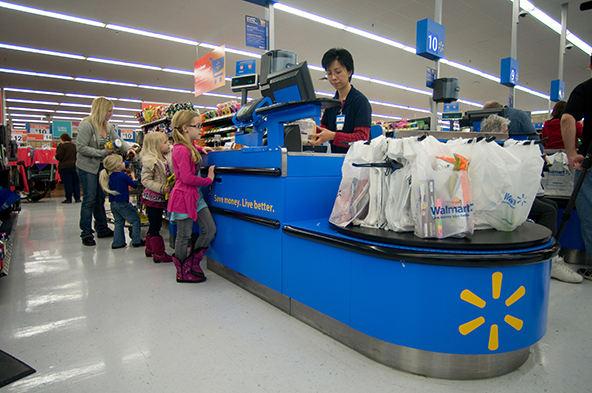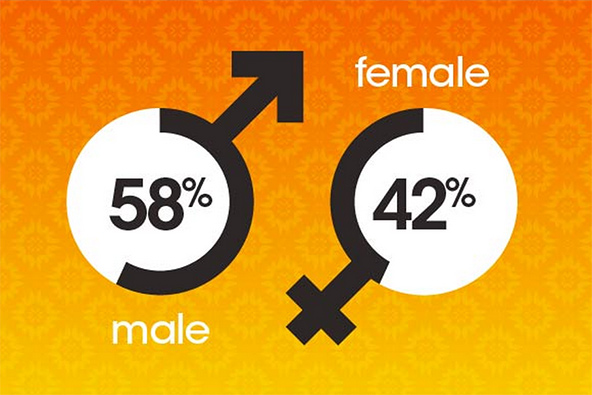Do You Care about Interchange Fees?

On Thursday of this week, lawyers representing a number of large retailers will ask U.S. District Judge John Gleeson to approve a settlement they reached in July with Visa, MasterCard and their biggest card issuing banks over credit card interchange fees, Reuters’ Jessica Dye reminds us. As regular readers will remember, in announcing the deal, attorneys from the three law firms that represent the various merchant groups involved in the case were declaring glorious victory in the form of an “historic settlement” worth an estimated $7.25 billion that would “create real price competition, leading to reduced card-acceptance fees for retailers.” As we said at the time, it was always clear that the settlement would do no such thing and some of the retailers, having eventually figured it all out (it took them a good week), began to turn sour on the deal.
Now, the retailers’ favorite line when communicating their position on the interchange matter to the media has always been that a reduction of these fees would lead to lower retail prices and so will benefit consumers. Of course, as the year-long experience from the reduction of the debit card interchange fees clearly demonstrates, such actions end up hurting, not benefiting, consumers. So it’s refreshing to see that, when their backs are up against the wall, the retailers and their attorneys can start revealing their true motives. Even more interesting in this case, however, is what the retail groups supporting the settlement (yes, there are such organizations) have to say about their decision.
Fair, Reasonable and Adequate
These are the lofty criteria to which the settlement will have to adhere, if it is to meet the legal standard for approving class action settlements, Dye informs us. Well, Wal-Mart, Target, Starbucks, Lowe’s and other merchant giants and retail groups think that the settlement that was put before Judge Gleeson falls miserably short of achieving the aforementioned objectives. It is “untethered to the law, economics and dynamics of this case”, is the way one attorney representing the objectors summarized it. Another lawyer agrees that “this is a remarkably and fatally flawed deal” and goes on to elaborate:
Because of the scope of the (litigation) release, which by its express terms gives defendants more than they could ever win at trial, this settlement is worse than losing.
It’s better to lose the case than to agree to this settlement, the attorney explained, because, if you lost, you could simply go back to court and try it all over again.
As I was going through Dye’s piece, I couldn’t fail to notice that neither the objecting retailers, nor their attorneys mentioned even once the interests of the consumers, on whose behalf they have always claimed to be fighting the card networks and their issuing banks. Even more amazingly, the merchants in favor of the settlement (about half of the ones which led the litigation, by Dye’s count), were touting the agreement’s consumer-friendly aspects. But they went even further than that.
Do You Care about Interchange Fees?
Here is what Melissa Plaisance, senior vice-president of finance at Safeway, one of the settlement supporters on the merchant side, has said of the settlement, as quoted by Dye:
We think it will begin to produce real competition in the payments business and potentially lower costs for all consumers.
But wait, if you find it remarkable that a senior executive of a retail giant has said such a thing (and it is), the settlement backers are making an even more bizarre claim. Here it is, as reported by Dye:
Representatives for Kroger and Safeway said the settlement would let them communicate with customers directly for the first time about swipe fees. They said consumer awareness of swipe-fee costs could motivate them to switch to less costly payment methods, such as cash.
As it happens, Kroger and Safeway are on my side of the argument, but that doesn’t make such a statement any more rational. And anyway, since I have no horse in this race, I can say whatever I want, right? See, consumers have no idea what interchange fees are (by the way, where did this “swipe fee” thing come from? Whoever came up with it should be sent to count yurts in Inner Mongolia banned from ever writing on the subject again.). None whatever. And it’s not just the consumers who are clueless on this subject. I have foolishly attempted to explain the concept of the interchange-plus pricing model to a great number of merchants, many of whom had been processing card payments for years before contacting UniBul. No matter how hard I tried, miserable failure was the usual outcome. And these guys are supposed to have inside knowledge of the industry. Now, you can argue that I have done a poor job at it and that may well be the case. But then ask yourself why neither Square, nor a single one of its clones in a fiercely competitive industry is offering an interchange-plus-type of pricing to their clients. Instead, all of them are sticking to PayPal’s much less merchant-friendly flat-rate pricing model.
The Takeaway
So how could Kroger and Safeway possibly expect that their customers would understand the intricacies of the credit card processing fee structure? It’s just mind-boggling. I wish someone conducted an in-store survey of Kroger and Safeway customers, asking them what interchange fees are. I can guarantee you that a blank stare would be the typical answer.
Anyway, I hope that Judge Gleeson will approve the settlement and put an end to this farce. It’s way overdue.
Image credit: Walmart.com.


